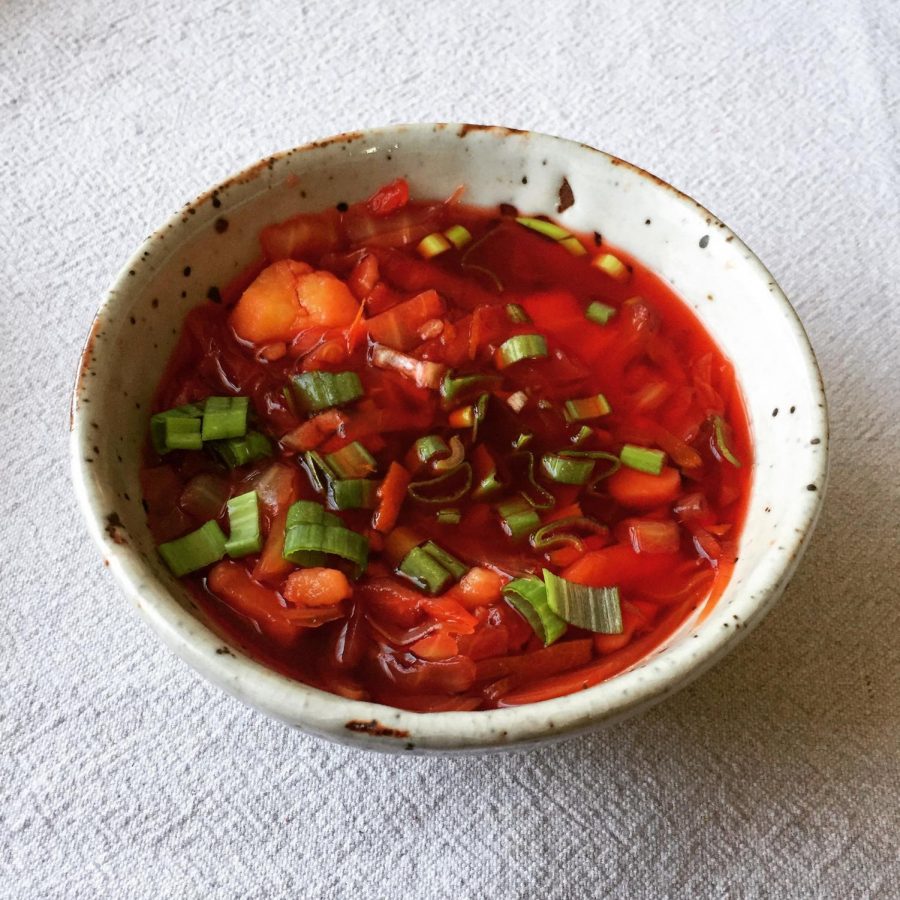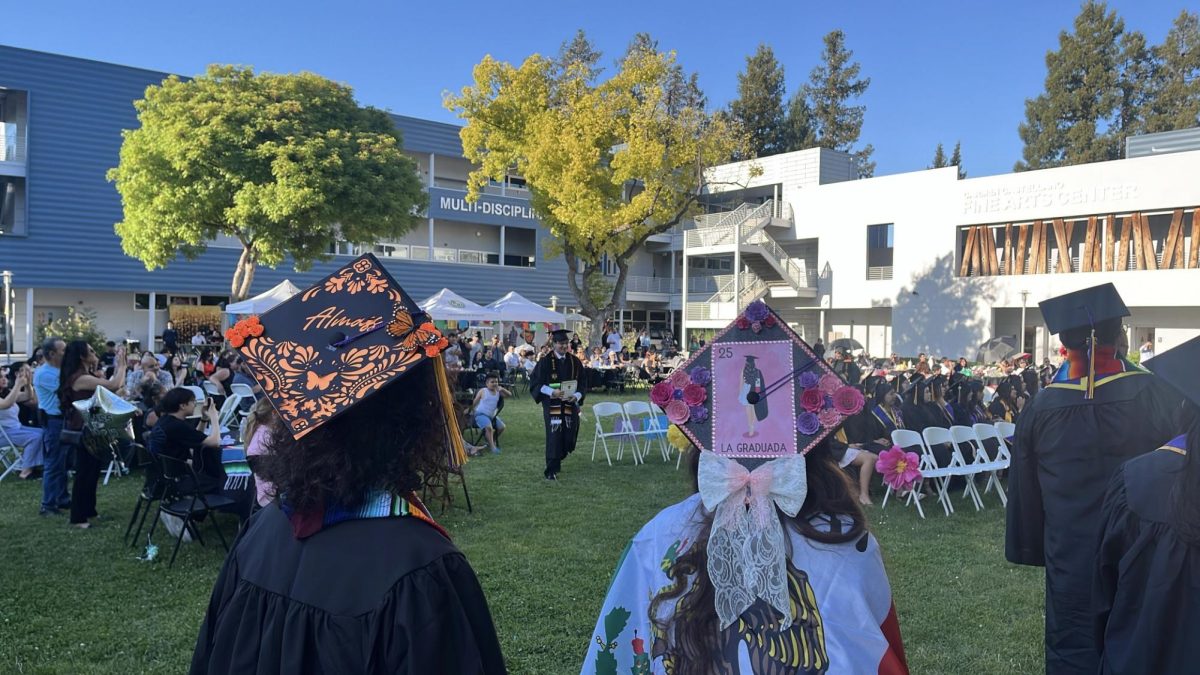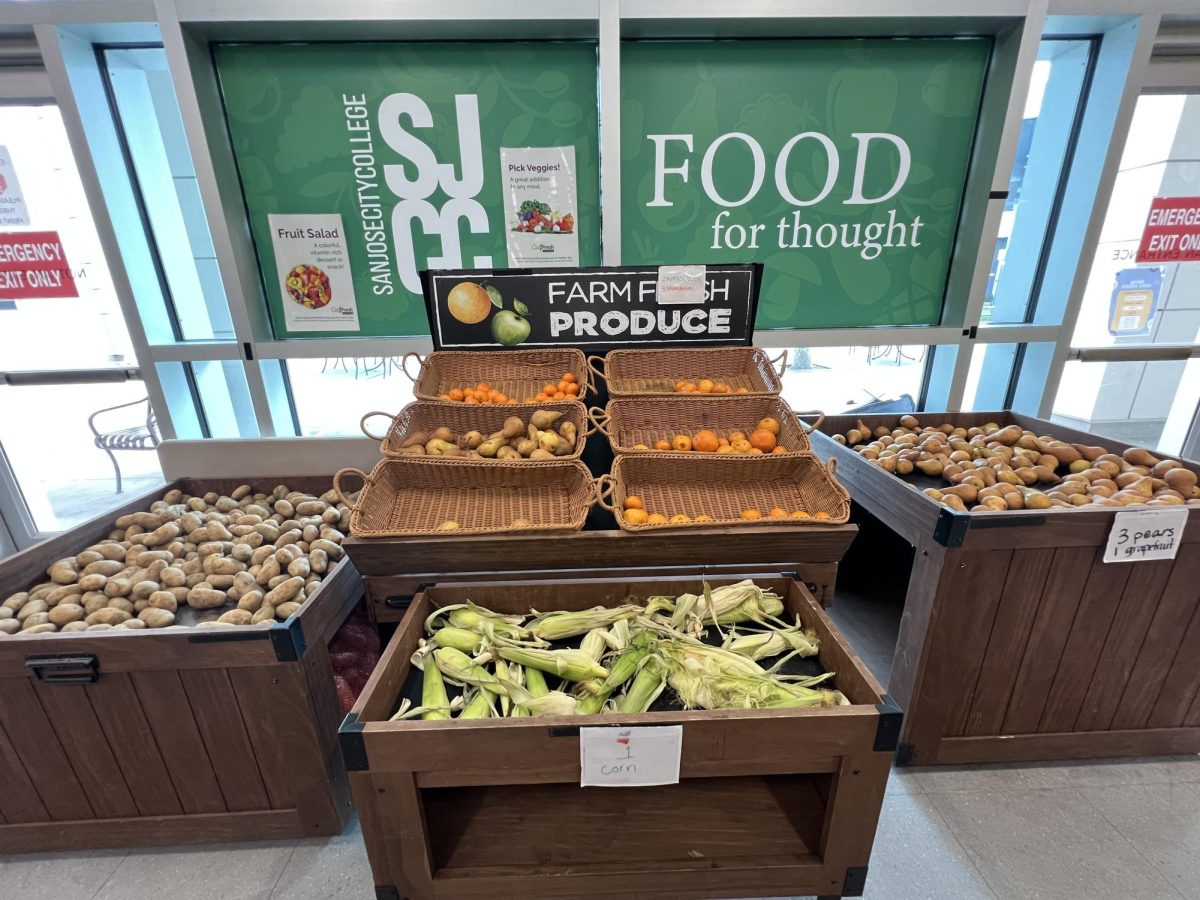Американцы из пирога, русские из борща
Антон Владимир, Times Staff
Для славянских народов Борщ – это праздник красного цвета, жизни и урожая.
Это красный суп из определенных овощей, который регулярно едят во всех семьях.
Моя семья русская, и мы часто участвуем в этом празднике.
Вид бабушки и дедушки, возвращающихся домой с рынка со свеклой, картофелем, помидорами и петрушкой, был верным признаком того, что у нас в тот день будет борщ.
Мне поручили подготовить ингредиенты, сначала помыть и нарезать картофель на небольшие куски, а затем бросить его в большую кастрюлю с кипящей водой.
Следующей была свекла – бабушка всегда напоминала мне закатать рукава и сменить рубашку, если она была белой, поскольку свекла имеет обыкновение оставлять красные пятна.
Красная свекла была затем брошена в кастрюлю с белым картофелем, что напоминало мне о гражданской войне 1917 года, которая закончилась поражением меньшевиков от рук большевиков.
Играла песня о мощи Красной армии, и мои бабушка и дедушка рассказывали мне о том, как их родители участвовали во Второй мировой войне и какова была жизнь в Советском Союзе. Была ли жизнь тогда лучше, Борщ об этом не знал. Но он питал нас и согревал наши сердца.
Помидоры были также нарезаны и брошены в кастрюлю вместе с сельдереем и морковью.
Я помешивал Борщ как волшебник, готовивший снадобье, чтобы вернуть павшего воина из царства мертвых.
На кухне висела знаменитая картина под названием «Витязь на распутье», на которой был изображен богатырь в степи на коне с копьем в руке.
Он торжественно смотрит на камень, за которым садится солнце.
Ожидает ли он смертельной опасности? Сможет ли он когда-нибудь вернуться домой? Я всегда задавался вопросом, был ли он голоден. Он мог бы съесть и борщ.
Несколько часов спустя, когда мы собирались на ужин, я тоже смотрел на закат, мягкие лучи оранжевого света отражались от сухих листьев бука и липы на земле возле нашей квартиры.
Наша кошка мурлыкала и вилась у моих ног, трогая мою руку, чтобы я почесал у нее за ухом.
Я ел борщ и улыбался моей семье, слушая истории из прошлого.
Богатырь выжил; он вернулся домой. И в тот момент то же произошло и со мной.

Language Corner highlights City College Times articles in different languages with an English translation.
English Translation:
To Slavic people, borsh or Barszcz is a celebration of the color red, life and the harvest the land provides.
It is a red soup filled with specific vegetables and eaten regularly in all families. My family is Russian, and we partake in this celebration often.
The sight of grandparents returning home from the market with beetroot, potatoes, tomatoes and parsley was a sure sign that we would be having borsh.
I was tasked with preparing the ingredients, first washing and cutting the potatoes into medium-sized chunks, then dropping them into a massive cauldron of boiling water.
The beetroots were next — Grandmother always reminded me to roll up my sleeves and change my shirt if it was white since the root has a nasty reputation of leaving red stains.
The red beetroots were then thrown into the cauldron with the white potatoes, reminding me of the 1917 Civil War which ended with the defeat of the Mensheviks (whites) at the hands of the Bolsheviks (reds).
A song could be heard in the background of the strength of the red army, and my grandparents would tell me about how their parents fared in WWII, and what life was like in the Soviet Union.
If life was better then, the borsh did not know; but it fed us and warmed our hearts.
Tomatoes were chopped and dumped in as well, along with other soft vegetables like celery and carrot.
I stirred the cauldron, like a wizard enchanting an elixir to bring back a fallen warrior from the realm of the dead.
A famous painting hung in the kitchen, named “Knight at the Crossroads,” displaying a Bogatyr (warrior) on the steppe upon his horse with a spear in his hand.
He looks solemnly at the stone as the sun sets behind it. Is he to expect mortal danger? Will he ever find his way back home? I always wondered if he was hungry. He could do with some Borsh.
Hours later as we gathered for dinner, I, too, looked out at the sunset, the soft rays of orange light reflecting off dry beech and linden leaves on the ground outside the apartment.
Our cat purrs and coils its body around my leg, seducing my hand to reach down and scratch its head. I took a sip of Borsh, and smiled at my family as we exchanged stories from the past.
The Bogatyr survived; he made his way home. And in that moment, so did I.







